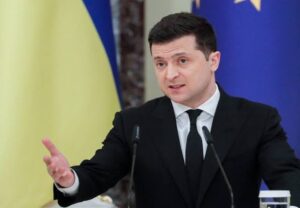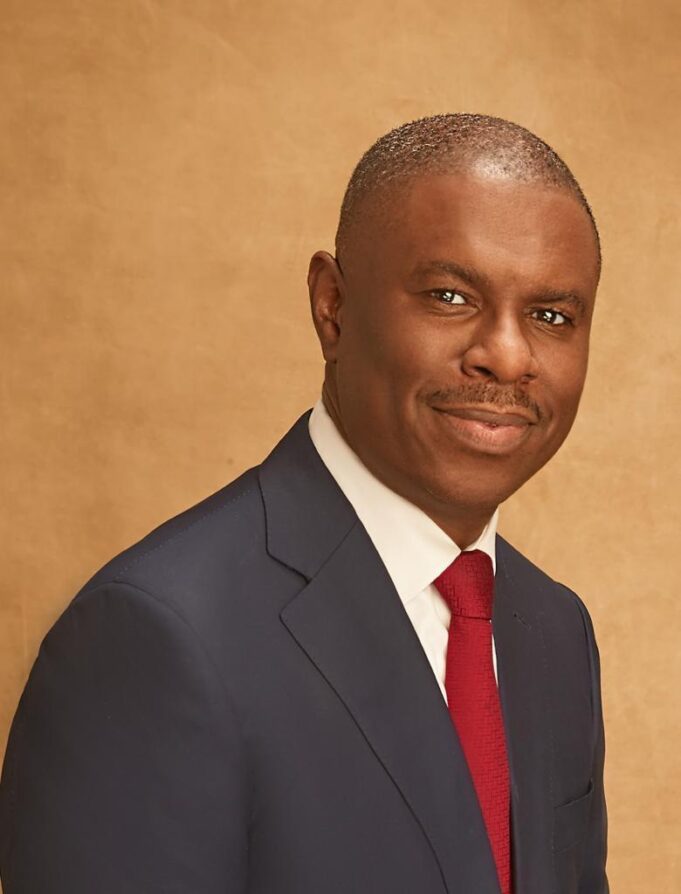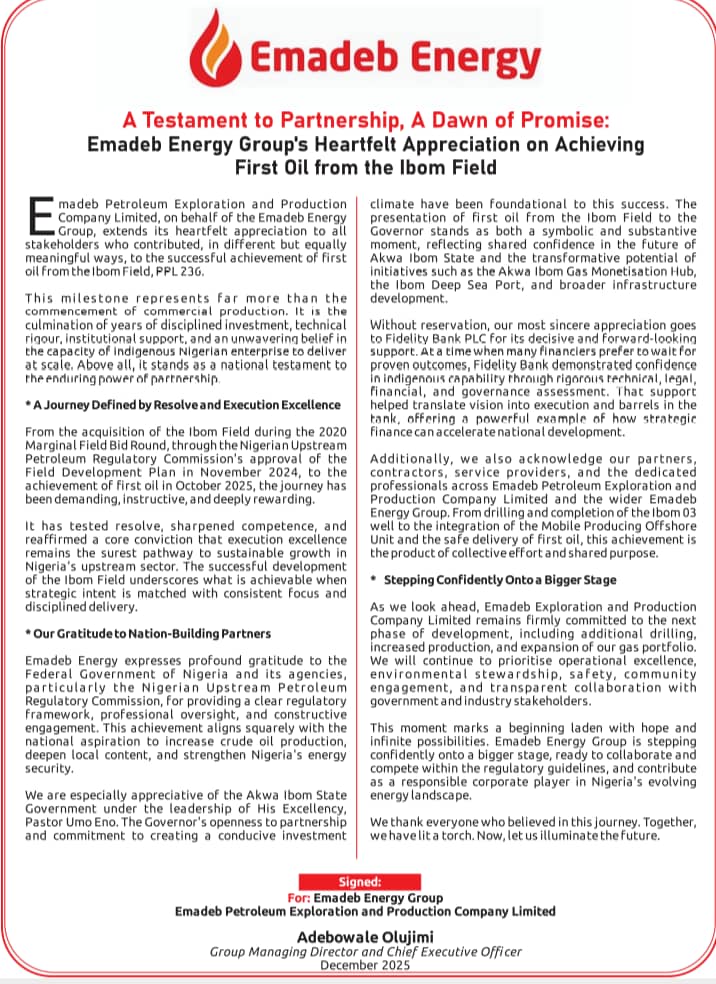By DAKUKU PETERSIDE
Leadership can come from anyone, anywhere, anytime, but this skill and attribute crucial in moving an organisation or nation forward is in short supply in Nigeria. Whenever we spot good leaders, it behoves us to find out why they got it right and use these to critically evaluate where we missed our way. In the past few weeks, the world has stayed focused on developments in Ukraine and Russia. The actions, inactions, and speeches of Ukrainian President, Volodymyr Zelensky is now of foremost importance to the world.
Zelensky rose from being an actor and comedian to leading a country through one of its most challenging moments. Ukraine is facing an invading army of great military prowess, which is the nation’s cross to carry. However, other countries and sub-nationals are facing crises of different proportions and dimensions.
Although dichotomously different in most aspects, Ukraine and Nigeria have parallels that allow us to compare these nations and explore ways leadership has been at the core of driving these nations forward. These parallels anchor on leadership in a time of crisis and uncertainty. Although not facing a superpower invading army, Nigeria is facing multiple existential and developmental challenges of epic proportions in its history. Apart from the civil war period, at no time has Nigeria been on a precipice, with an uncanny feeling that it may tip over as today.
On the other hand, Ukraine is fighting the mother of all wars – a war of attrition with a nuclear superpower bent on stopping NATO and western expansion and global dominance. Ukraine has become the epicentre of the proxy war between Russia and the West. The way leaders of Ukraine are handling this war leaves lessons in leadership that will benefit Nigerian leaders. But first, let us try to conceptualise leadership and situate it in the Russian – Ukraine war context.
Leadership is not about power, title or position. Vladimir Putin has vast power and all the adornment and paraphernalia that go with that power. And yet, as he sits at his ridiculously long table surrounded by opulence and “yes-men,” he does not lead. Putin is a symbol of tyranny and intimidation but certainly not a leader. While he demands deference, he does not earn respect. The highest calling of a leader is to unlock potential in others.

President Zelensky has held the title and power of a President for several years, but it is only during this war that the world began to take notice of his attributes as a leader. He is a leader because he invests all his energy into unlocking potential in others. Zelensky is a classic small man pitted against a modern day Goliath. He is on the side of liberal democratic values of freedom and sovereign integrity fighting against a known autocratic leader. He has become a defender of liberal order against the authoritarianism of Russia and China. Inadvertently, he has built up the capability of his people for resistance, the potential of other nations for steadfast and significant support, the prospect of the world to remember that some principles and ideals are worth fighting for, no matter the cost.
Leaders have the fortitude to ask of themselves what they ask of others. President Zelensky has done what he is asking his people to do, and he and his family have stayed in harm’s way and resisted the invading army. While he has a particular role, he knows that others’ parts are equally essential. He has not focused on himself, but on the outcomes he must achieve.
While many others call him a hero, Zelensky always turns this attention towards others. He reminds the world of the courage and sacrifice of Ukrainians, and the vital role other nations must play in support of freedom. Despite all the enormous setbacks and difficulties, he points towards an aspirational future State: a free and sovereign Ukraine, a European continent and a NATO alliance with renewed purpose, and a contained rapacious Russia. He has not hesitated to challenge others to play their crucial role, and he is looking for accountability and results.
Why has President Zelensky been so effective at rallying his people and the world? He displayed the courage to face reality and the candour to describe that reality. Because when the circumstances changed and Russia invaded, he quickly pivoted from a belief that this would not happen to fully accept the current state of war and the hard choices that were now necessary.
Zelensky is gifted in communication skill, another attribute of great leaders. He has bluntly described this reality in a complete, candid, compelling, and consistent way so that no one can misunderstand where things are. He is endowed with charisma, character and courage, something lacking among the Nigerian elite and leadership class. He has displayed an elevated level of selflessness.
People follow leaders who fight for them and place the group interest above personal interest. Corrupt leaders are driven by greed and self-interest and can hardly earn the confidence and support of their followers, and corruption is the bane of leadership in Nigeria .
Unlike Ukraine, as a country, Nigeria does not have a critical mass of leaders who lead by example. The fuel crisis we suffer today as a country is simply a failure of leadership to rise to the occasion courageously. We need the kind of courage and sincerity displayed by Zelensky to tackle the fuel subsidy issue that has lingered for too long with no clear path to resolving it.
Insecurity has festered because of a lack of commitment, sincerity, and leadership creativity among Nigerian leaders. No leader has rallied the people and institutions in Nigeria to eradicate insecurity by tackling its root causes and facing the criminals squarely. Nigerian leaders often allow ethnic parochialism to bottleneck any progress in tackling Boko Haram, terrorism, secessionist agitations and banditry. Our leaders have failed to find a lasting solution to the perennial problem of insecurity, economic
hardship, and corruption. Our leaders must realise that these evils, like Russians, have invaded our country, and they must declare war on them.
A few pertinent questions merit our thoughtful consideration. What does Zelensky represent in leading during chaos and crisis times? What lessons can Nigerian leaders learn from him? How can they apply these leadership lessons to the Nigerian context? Nigerian leaders have a few lessons to learn from Zelensky and developments in Ukraine. Every nation, subnational or firm will face its crisis at one time or the other. It may not be an invading army but a development challenge, governance or public health crisis, or just any unanticipated issue. How do our leaders react?
Zelensky has, without doubt, rallied the nation behind the cause of defending Ukraine from an invading neighbour. He has, in diverse ways, inspired the Ukrainian army and citizens to stand up for the nation and its future. He has led by example. Nigerian leaders have no such paradigm. Nigeria leadership challenge is to manage a country at peace but faced with grave governance issues. The task is for our leaders to rise to the occasion. They should rally all Nigerians to work towards eliminating corruption, ethnicity, and insecurity in our country. They should create a vision of Nigeria post-insecurity and get Nigerians to visualise and envision it to get their buy-in to the “free Nigeria project”. Our leaders must change the narrative and force a “paradigm shift” on our collective psyche.
Zelensky kept true to his belief and has walked the talk by staying back in Ukraine to fight, unlike the Afghan president who abandoned the country at the slightest threat of Taliban invasion. Zelensky has stayed to defend his country. He has become the symbol of Ukrainian resistance, a focal point for the pride felt by Ukrainian citizens. He embodies the risk, so many of his fellow Ukrainians now are taking. His courage has been as infectious as a virus, with far more positive results, and he has demonstrated total commitment to the conflict.
Many Nigerian leaders will abandon their people at the slightest threat to their comfort. Nigerians feel abandoned by their leaders in their times of need. It is either that leaders did not come to their rescue during attacks, or never showed any interest in the plight. Even when they show interest, they do little or nothing, milk the photo opportunities for the press, and abandon the victims to their fate. Nigerians are fade up with the sirens and armoured vehicles with scores of security operatives guarding their leaders everywhere they are when millions of Nigerians are displaced from their homes and are in IDP camps, still afraid for their lives. Many Nigerian leaders play the ostrich instead of walking the talk with tackling insecurity.
Zelensky has demonstrated courage, good humour, and grace under the storm. We cannot tackle some of our challenges, such as existential threats of ethnic agitation, insecurity, subsidy corruption, fuel scarcity and ongoing ASUU strike, because of a lack of courage by our leaders to face reality and devise ingenious solutions. Every government that comes to power promises to deal with the fuel subsidy problem and change our fuel regime. The gap is sincerity, courage , ability to communicate in a way that inspires trust.

Zelensky has inspired loyalty from his people, and this loyalty is such that some Ukrainians outside the country are coming back to fight and defend its sovereignty. He gained this loyalty by convincing his people that he fought their cause through his words and actions.In Nigeria, most of our leaders cannot earn the loyalty of their constituents or citizenry because there is a mismatch between their words and actions, and quite often, their actions do not align with the ideals and aspirations of the people they lead. It is only through their commitment to group ideals and aspirations that leaders inspire loyalty.
When President Zelensky was a comedian, no one would have predicted that he would become a historical figure and a leader who inspires the world. He reminds us of one last truth about leadership. Anyone can lead, and in the end, leadership is always a choice.
Nigerian circumstances are vastly different from an invasion and ground war. But it is like Ukraine in the fact that we are fighting too many governance issues and anti- developments wars. You do not need to wait for an actual war to show extraordinary leadership. All that is required is for leaders to elevate a major national or subnational problem to the status of an emergency and use that emergency as a conflict and apply the same principles as Zelensky did. Authentic and creative leadership, inspired by common good is the catalyst to changing things for the better.
- Nigeria confirms U.S. air strikes on terrorist target in North-West - December 26, 2025
- U.S. bombs IS terrorists in Sokoto State as Trump vows more strikes - December 26, 2025
- 2025: Year of Immigration ‘Shege’, By FUNKE EGBEMODE - December 25, 2025










